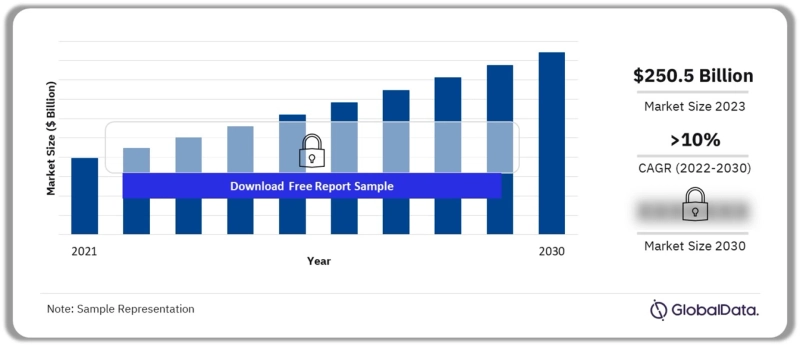The gaming market is diverse and encompasses various sectors, including console gaming, PC gaming, mobile gaming, and emerging technologies like cloud gaming and virtual reality.
Buy the Full Report for Additional Insights on the Gaming Market Forecast
Here's an overview of key players and their market share analysis across different segments:
1. Console Gaming
Sony Interactive Entertainment
Overview: Sony Interactive Entertainment (SIE) is a subsidiary of Sony Corporation and the developer and manufacturer of PlayStation consoles.Market Share: PlayStation is one of the leading console gaming platforms globally, with the PlayStation 4 (PS4) and PlayStation 5 (PS5) dominating market share in their respective generations.Microsoft Xbox
Overview: Microsoft's Xbox division develops and manufactures Xbox consoles and gaming services.Market Share: The Xbox brand competes closely with PlayStation, with the Xbox Series X|S vying for market share alongside the PlayStation 5. Xbox Game Pass, Microsoft's subscription service, is also a significant player in the gaming market.Nintendo Co., Ltd.
Overview: Nintendo is a Japanese multinational consumer electronics and video game company known for its iconic gaming franchises and consoles, such as the Nintendo Switch.Market Share: While Nintendo's market share may fluctuate compared to Sony and Microsoft, the unique appeal of Nintendo's first-party titles and family-friendly gaming experiences ensures a strong presence in the console gaming market.2. PC Gaming
Valve Corporation
Overview: Valve Corporation is a video game developer, publisher, and digital distribution platform operator known for its Steam platform, the largest digital storefront for PC gaming.Market Share: Steam dominates the PC gaming market, accounting for a significant share of digital game sales, downloads, and community engagement.Epic Games
Overview: Epic Games is a video game and software development company known for its game engine Unreal Engine and the Epic Games Store, a digital distribution platform for PC gaming.Market Share: While Epic Games Store competes with Steam, its market share may be smaller, but it's growing rapidly, driven by exclusive game releases and developer-friendly revenue-sharing models.3. Mobile Gaming
Tencent Holdings Limited
Overview: Tencent is a Chinese multinational conglomerate known for its investments in technology, entertainment, and gaming. It owns several popular mobile gaming companies, including Riot Games (League of Legends) and Supercell (Clash of Clans).Market Share: Tencent dominates the mobile gaming market globally, with a diverse portfolio of successful titles and investments in both domestic and international markets.Activision Blizzard
Overview: Activision Blizzard is an American video game holding company known for its popular franchises such as Call of Duty, World of Warcraft, and Candy Crush.Market Share: While primarily known for its console and PC games, Activision Blizzard also has a significant presence in the mobile gaming market, particularly with titles like Candy Crush Saga and Call of Duty Mobile.4. Emerging Technologies
Google (Google Stadia)
Overview: Google Stadia is a cloud gaming service developed and operated by Google, allowing players to stream video games over the internet without the need for dedicated gaming hardware.Market Share: While Google Stadia faces competition from other cloud gaming services, its integration with Google's ecosystem and infrastructure positions it as a key player in the emerging cloud gaming market.Facebook (Oculus)
Overview: Facebook, now Meta Platforms, Inc., owns Oculus, a virtual reality headset manufacturer known for products like the Oculus Rift and Oculus Quest.Market Share: Oculus is a leading player in the virtual reality market, with its Oculus Quest 2 headset driving adoption and engagement in VR gaming and experiences.Market Share Analysis
Platform Dominance: Sony's PlayStation, Microsoft's Xbox, and Nintendo's Switch continue to dominate the console gaming market, each with its unique strengths and exclusive titles.Digital Distribution: Valve's Steam and Epic Games Store are the primary digital storefronts for PC gaming, with Valve holding a larger market share but facing increasing competition from Epic Games Store.Mobile Monetization: Tencent leads the mobile gaming market, with its successful monetization strategies and investments in popular titles. Activision Blizzard also maintains a significant presence in mobile gaming, leveraging its established franchises.Conclusion
The gaming market is highly competitive, with key players vying for market share across various platforms and segments. Console gaming remains dominated by Sony, Microsoft, and Nintendo, while PC gaming sees competition between Valve's Steam and Epic Games Store. In mobile gaming, Tencent leads the way with its diverse portfolio, while emerging technologies like cloud gaming and virtual reality present new opportunities for companies like Google and Meta Platforms (formerly Facebook). Overall, the gaming market is dynamic and continues to evolve as technology advances and consumer preferences shift.


